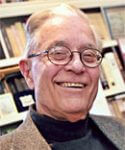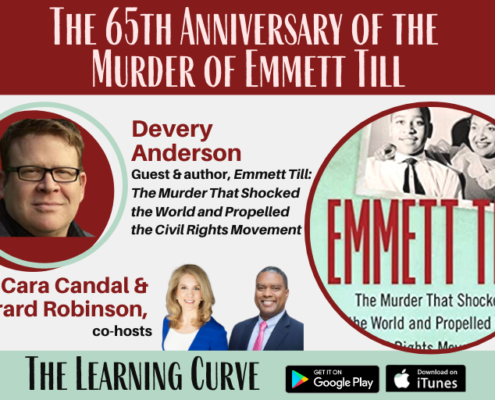Oxford & UCLA Pulitzer Winner Prof. Daniel Walker Howe on Horace Mann, Common Schools, & Educating for Democracy
This week on “The Learning Curve,” Cara and Gerard are joined by Daniel Walker Howe, Rhodes Professor of American History Emeritus at Oxford University in England and Professor of History Emeritus at UCLA. Drawing from his Pulitzer Prize-winning book, What Hath God Wrought: The Transformation of America, 1815-1848, he provides background information on Horace Mann, the first secretary of the Massachusetts State Board of Education, founder of the common school movement in public education, and a prominent abolitionist in Congress. They explore Mann’s vision of primary and secondary public schooling as a conduit for political equality and citizenship in a democratic society, and what common schools meant for African-American and female students. They also explore the religious origins of very high rates of adult literacy in early Puritan New England, as well as the Founders’ constitutional vision of state and locally-driven K-12 education.
Stories of the Week: Last week, we said goodbye to one of America’s leading public intellectuals, Walter E. Williams, Professor of Economics at George Mason University, author of over a dozen books, prominent libertarian, and syndicated columnist. After the Every Student Succeeds Act required states to be transparent about funding on school-level report cards, some states are publishing this data, but not others – which presents challenges in terms of spending priorities as budget cuts loom.
Interview Guest
 Daniel Walker Howe is Rhodes Professor of American History Emeritus at Oxford University in England and Professor of History Emeritus at the University of California, Los Angeles. He won the 2008 Pulitzer Prize for History for What Hath God Wrought: The Transformation of America, 1815–1848. He also wrote Making the American Self: Jonathan Edwards to Abraham Lincoln and The Political Culture of the American Whigs. Howe graduated magna cum laude in American history and literature from Harvard College and received his Ph.D. in history at the University of California, Berkeley.
Daniel Walker Howe is Rhodes Professor of American History Emeritus at Oxford University in England and Professor of History Emeritus at the University of California, Los Angeles. He won the 2008 Pulitzer Prize for History for What Hath God Wrought: The Transformation of America, 1815–1848. He also wrote Making the American Self: Jonathan Edwards to Abraham Lincoln and The Political Culture of the American Whigs. Howe graduated magna cum laude in American history and literature from Harvard College and received his Ph.D. in history at the University of California, Berkeley.
Tweet of the Week:
EXCLUSIVE FIRST LOOK: Viola Davis as Ma Rainey in Ma Rainey's Black Bottom. Viola completely embodies the aptly named "Mother of the Blues" in this scene.
Ma Rainey's Black Bottom will premiere December 18 globally on Netflix. pic.twitter.com/PtXlJCpHHC
— Strong Black Lead (@strongblacklead) December 2, 2020
News Links:
Walter Williams, R.I.P.
https://www.wsj.com/articles/walter-williams-r-i-p-11606934313
New Requirement to Publish Per-Pupil Spending Data Could Help Schools Direct Funding to the Neediest Students. But Even in the Face of Budget Cuts, State Implementation Lags
Get Updates on Our Education Research
Related Posts























